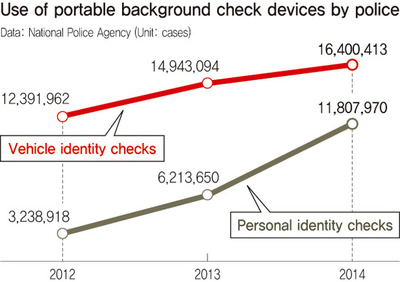 |
Use of portable background check devices by police
|
CONTACT US

World Clock
Tuesday, January 13, 2015
Stop and search: huge increase in police portable background checks
Subscribe to:
Post Comments (Atom)

 |
Use of portable background check devices by police
|
No comments:
Post a Comment